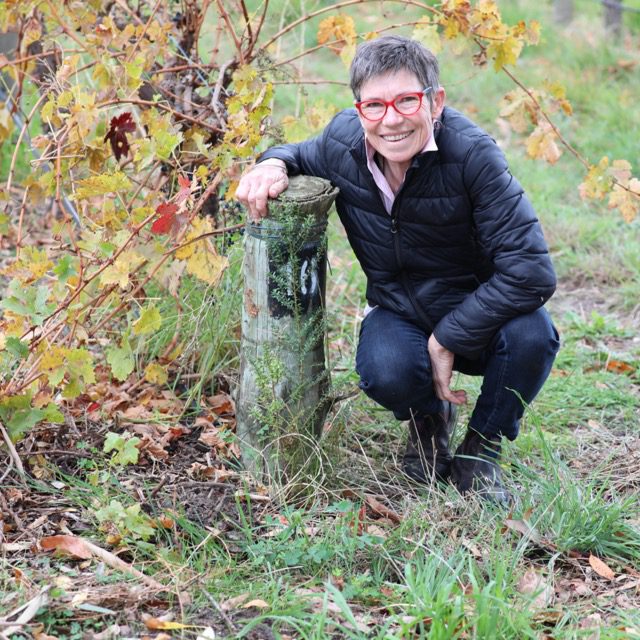1. Tell us about your experience in grape growing?
I have been in involved in vineyards and wineries since the very early 80’s and primarily in viticulture since 1986. My husband and I bought a vineyard in Blewitt Springs in 1993 and have been here working since then.
2. What prompted you to want to be involved in the EcoVineyards project?
I have realised for years that I need to be more organic and aware of the natural surroundings and nature.
3. What do you hope to achieve from your involvement in the EcoVineyards project?
Through my involvement with EcoVineyards I hope to harness what I already have growing and use nature and the natural surroundings to help me control pests and diseases.
I hope to create more biodiversity with my plantings to host more species of GOOD bugs and use native grasses and plants to help me control my undervine and midrow from unwanted weed species.
4. Have you tried to increase biodiversity on your property before undertaking this project? If so, how?
We were lucky enough to buy a vineyard surrounded by and planted throughout with many different species of Eucalypts and other Australian natives. We have in turn planted many more species and do have thriving bug and birdlife and have always felt that it has helped in the vineyard rather than hindered.
I had not thought of planting prostrate natives and native grasses in my midrow and undervine but am very keen to try it and see how it goes.
5. Why do you think it is so important for growers to try and build natural resilience on their property?
I really hope I’m seeing a trend away from dangerous insecticides in vineyards. I have seen them do more harm than good on a property I worked on many years ago (they are now totally organic).
We don’t see natural resilience built by having monocultures so one of the best ways to build resilience is using biodiversity in whatever form works on our properties.Australian native plants is an easy way to do this whilst still continuing with a monocultural crop.
6. Looking to the future, what do you see as a new ‘normal’ for grape growers on their properties?
I think in the McLaren Vale region, where our weather is kinder than a lot of other areas, more and more growers will change their growing practices and become organic producers.
This means we won’t be reliant on chemicals but more reliant on natural “fix its” which we will need to encourage in our vineyards and surrounds.
The marketplace is paying more attention to where and how food and wine is grown which gives growers more incentive to change their practices to cleaner and greener and if that is by changing biodiversity in the vineyard, what a great way to do it.
READ THE CASE STUDY

